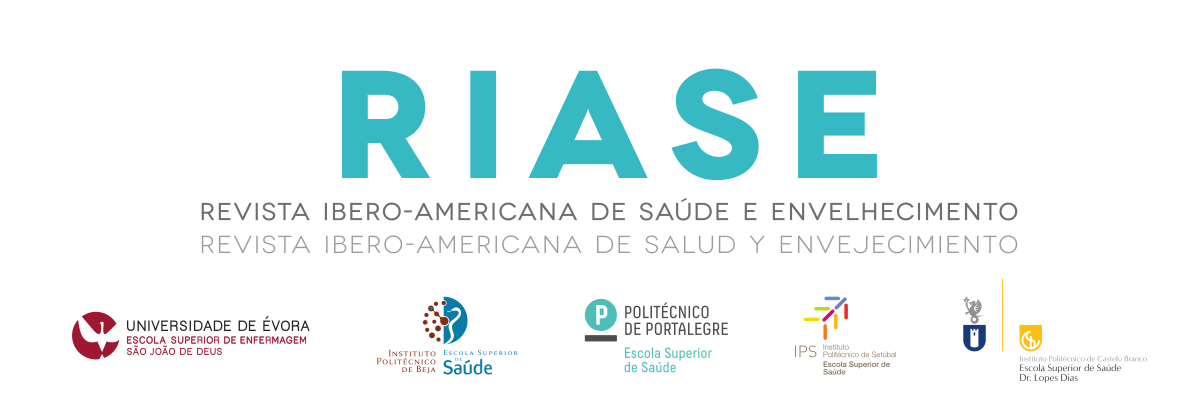EFEITO DO DIÁRIO DA PESSOA INTERNADA EM UCI NA PREVENÇÃO DE DISTÚRBIO DE STRESS PÓS-TRAUMÁTICO: UMA REVISÃO SISTEMÁTICA DA LITERATURA
Resumo
Introdução: A hospitalização em Unidades de Cuidados Intensivos [UCI] é uma experiência stressante para a pessoa internada e para a família/cuidador devido a múltiplos fatores. Muitos destes, acabam por desenvolver sintomas de Stress Pós-Traumático [SPT], que se não forem diagnosticados e tratados atempadamente, geram consequências graves no regresso ao quotidiano e na qualidade de vida. Uma estratégia empírica para prevenir o SPT é a criação de uma narrativa para reconstruir o período de internamento em UCI e dar sentido às memórias desfragmentadas e delirantes. Objetivos: Avaliar se a realização do Diário da Pessoa Internada [DPI] em UCI é eficaz na prevenção do desenvolvimento de sintomas de SPT. Metodologia: Realizou-se uma revisão sistemática da literatura, com base na análise de 5 artigos, após processo de pesquisa na base de dados científica EBSCOhost, utilizando os descritores: “Critical Care”; “Diary” e “Stress Disorders, Post Traumatic”; e aplicação de vários critérios de exclusão. Foram aplicadas as JBI Critical Appraisal Tools para avaliar a confiabilidade, relevância e resultados dos artigos. Resultados/ Conclusões: Prevenir a ocorrência de sintomas de SPT deve ser um foco de atenção dos profissionais de saúde de medicina intensiva. A realização do DPI em UCI é uma estratégia dinamizadora nessa área cujo benefício, a nível quantitativo, não é estatisticamente significativo, mas que, qualitativamente, é uma estratégia muito apreciada pela Pessoa e pela família/cuidador. Para potenciar o seu efeito, este deverá estar integrado em simultâneo com outras estratégias. Palavras-chave: Cuidados Intensivos; Diário; Stress Pós Traumático; Pessoa em Situação Crítica; Família
Referências
Warlan H, Howland L. (2015). Posttraumatic stress syndrome associated with stays in the intensive care unit: Importance of nurses’ involvement. Critical Care Nurse, 35(3), 44–52. https://doi.org/10.4037/ccn2015758
Torres L, Nelson F, West G. (2020). Exploring the Effects of a Nurse-Initiated Diary Intervention on Post – Critical Care Posttraumatic Stress Disorder. The American Journal of Nursing, 120(5).
Wade D, Als N, Bell V, Brewin C, D’Antoni D, Harrison D, et al. Providing psychological support to people in intensive care: Development and feasibility study of a nurse-led intervention to prevent acute stress and long-term morbidity. BMJ Open. 2018; 8(7), 1–12. https://doi.org/10.1136/bmjopen-2017-021083
Garrouste-Orgeas M, Flahault C, Fasse L, Ruckly S, Amdjar-Badidi N, Argaud L, et al. The ICU-Diary study: Prospective, multicenter comparative study of the impact of an ICU diary on the wellbeing of patients and families in French ICUs. Trials. 2017; 18(1), 1–11. https://doi.org/10.1186/s13063-017-2283-y
Busico M, Neves A, Carini F, Pedace M, Villalba D, Foster C, et al. Follow-up program after intensive care unit discharge. Medicina Intensiva (English Edition). 2019; 43(4), 243–254. https://doi.org/10.1016/j.medine.2019.03.009
Nielsen A, Angel S, Egerod I, Lund T, Renberg M, Hansen, T. The effect of family-authored diaries on posttraumatic stress disorder in intensive care unit patients and their relatives: A randomised controlled trial (DRIP-study). Australian Critical Care. 2019; 33(2), 123–129. https://doi.org/10.1016/j.aucc.2019.01.004
Sayde G, Stefanescu A, Conrad E, Nielsen N, Hammer R. Implementing an intensive care unit (ICU) diary program at a large academic medical center: Results from a randomized control trial evaluating psychological morbidity associated with critical illness. General Hospital Psychiatry. 2020; 66(January), 96–102. https://doi.org/10.1016/j.genhosppsych.2020.06.017
Nielsen A, Angel S. How diaries written for critically ill influence the relatives: A systematic review of the literature. Nursing in Critical Care. 2016; 21(2), 88–96. https://doi.org/10.1111/nicc.12158
Galazzi A, Adamini I, Bazzano G, Cancelli L, Fridh I, Laquintana D, et al.. Intensive care unit diaries to help bereaved family members in their grieving process: a systematic review. Intensive and Critical Care Nursing. 2022; 68(xxxx), 103121. https://doi.org/10.1016/j.iccn.2021.103121
Joanna Briggs Institute. JBI Reviewer ’ s Manual. The Joanna Briggs Institute. 2022; March, 32. https://reviewersmanual.joannabriggs.org/
Salameh J, Bossuyt P, McGrath T, Thombs B, Hyde C, MacAskill P, et al. Preferred reporting items for systematic review and meta-analysis of diagnostic test accuracy studies (PRISMA-DTA): Explanation, elaboration, and checklist. The BMJ. 2020; 370(12). https://doi.org/10.1136/bmj.m2632
Joanna Briggs Institute. Critical Appraisal Checklist for Case Reports - Critical Appraisal tools for use in JBI Systematic Reviews. 2020; 1–5. https://joannabriggs.org/critical_appraisal_tools
The Joanna Briggs Institute. Checklist for Qualitative Research: Critical Appraisal tools for use in JBI Systematic Reviews. Jbi.Global. 2017; 1–6. https://joannabriggs.org/sites/default/files/2020-08/Checklist_for_Systematic_Reviews_and_Research_Syntheses.pdf%0Ahttps://jbi.global/sites/default/files/2020-08/Checklist_for_Systematic_Reviews_and_Research_Syntheses.pdf%0Ahttp://joannabriggs.org/researc
Joanna Briggs Institute. JBI Approach : Grades of Recommendation. Grades of Recommendation, October, 2013. https://joannabriggs.org/sites/default/files/2019-05/JBI-grades-of-recommendation_2014.pdfn
Garrouste-Orgeas M, Flahault C, Vinatier I, Rigaud J, Thieulot-Rolin N, Mercier E, et al. Effect of an ICU Diary on Posttraumatic Stress Disorder Symptoms Among Patients Receiving Mechanical Ventilation: A Randomized Clinical Trial. JAMA - Journal of the American Medical Association. 2019; 322(3), 229–239. https://doi.org/10.1001/jama.2019.9058
Kredentser M, Blouw M, Marten N, Sareen J, Joseph Bienvenu O, Ryu J, et al. Preventing posttraumatic Stress in ICU survivors: A single-center pilot randomized controlled trial of ICU diaries and psychoeducation. Critical Care Medicine. 2018; 46(12), 1914–1922.
https://doi.org/10.1097/CCM.0000000000003367
DOI: http://dx.doi.org/10.60468/r.riase.2023.9(4).613.8-22
Apontamentos
- Não há apontamentos.


